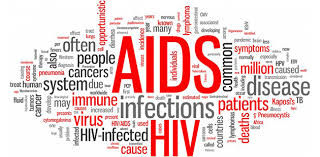PSGDN calls for more support for the regional LGBTQI community in the informal sector
- webmaster13878
- Feb 23, 2022
- 3 min read

We need to envision a Pacific in which all Lesbian, Gay, Bisexual, Transgender, Queer and Intersex (LGBTQI) people live with dignity, safety, and opportunity in inclusive communities and societies.
That’s the message from Pacific Sexual and Gender Diversity Network (PSGDN) Chief Executive Officer Isikeli Vulavou as we mark the World Day of Social Justice today (20/02/22).
World Day of Social Justice is an international day recognizing the need to promote social justice, which includes efforts to tackle issues such as poverty, exclusion, gender inequality, unemployment, human rights, and social protections.
The theme for this year's World Social Justice Day is “Achieving Social Justice through Formal Employment”. According to the United Nations, 60 per cent of the world’s employed population, which include men, women and youth earn their livelihoods in the informal economy, often lacking social protection and employee-related benefits.
The International Labour Organization (ILO) estimates that more than 2 billion people worldwide are employed in the informal sector.
Vulavou says it is a sad reality today that many LGBTQI communities in Fiji and the Pacific, who work in the informal sector, have been pushed to the margins based on racial, gender, sexual orientation and/or gender identity and/or expression or economic status.
The CEO highlighted that many discriminatory laws and socio-cultural norms continue to marginalize and exclude LGBTQI persons from basic economic opportunities, access to education, health care, housing, employment and occupation, sports, access to justice – and denying their fundamental rights and freedoms.
"This environment of exclusion lends itself to violence and discrimination. Exclusion also leads to inequality of opportunity and of access to resources,” the CEO said.
In the Pacific, Vulavou said COVID-19 has highlighted the vulnerability of workers in the informal sector, with the LGBTQI community being the worst affected.
The CEO said the current COVID-19 pandemic and challenges faced regionally has exacerbated pre-existing inequalities prevalent in LGBTQI-centered communities.
“Many responses to the pandemic exacerbate the patterns of discrimination, social exclusion and violence. While contributing to social isolation recommendations of staying home imposed by many Pacific governments, LGBTQI people are forced to endure prolonged exposure to unaccepting family members, which aggravates rates of domestic violence, physical and emotional abuse, as well as their mental health status.
“In many Pacific Island countries, LGBTQI people overwhelmingly rely on informal economies and the tourism sector heavily affected by COVID-19 restrictions.
“Many LGBTQI persons who worked in the informal sector and the tourism industry have lost their jobs and income or been sent home without pay. Social protection programmes of their government is not adequate to meet their needs and sometimes do not even list them as vulnerable populations.
“Findings and feedback from our network members indicate many LGBTQI people had difficulties finding a decent place to live safely as they no longer had access to their rented homes or flats because of financial constraints.
"When they lost their jobs, they could not afford rent, and were forced to go back to homes they had gladly left because of the mistreatment, discrimination and violence - and live dependently again.
“COVID-19 had greatly affected their independence and taken some of their freedoms.”
The CEO outlined that LGBTQI who work in the informal sector continue to face discrimination and abuse in all regions and in all stages of the employment cycle - whether it is hiring, advancement, training, compensation and termination, or during performance appraisals.
“As a result, many LGBTQI people are forced to conceal their sexual orientation and gender identity, which can lead to considerable anxiety and loss of productivity.”
Vulavou said it is imperative for Pacific governments to focus on the need to formalize employment and raise the minimum wage limit as a means of reducing poverty and inequality.
“Informal workers often lack social protection and employment related benefits. Most people join the informal workforce not by choice, but due to lack of opportunities and discrimination in the formal economy.
“In addition, states need to ensure that there are legal protections for LGBTQI people in the workplace so that LGBTQI can enter the formal sector without having to hide important aspects of themselves that are critical for attainment of high-quality productivity outputs and career promotions.”
The CEO said it is time the Pacific shifts its focus towards strengthening the informal economy through programs that are inclusive, and non-discriminatory and one that promotes acceptance at workplaces.
“Many LGBTQI people run their own small business and they need more assistance. Government grants will help informal businesses to expand. These will help to reduce poverty and inequality and at the same time increase productivity and sustainability within a decent workforce.”
The PSGDN is grateful for the support that the New Zealand and Netherlands governments are
providing, along with the UN WOMEN, to help address some of these key issues in the Pacific.
Ends...




Comments